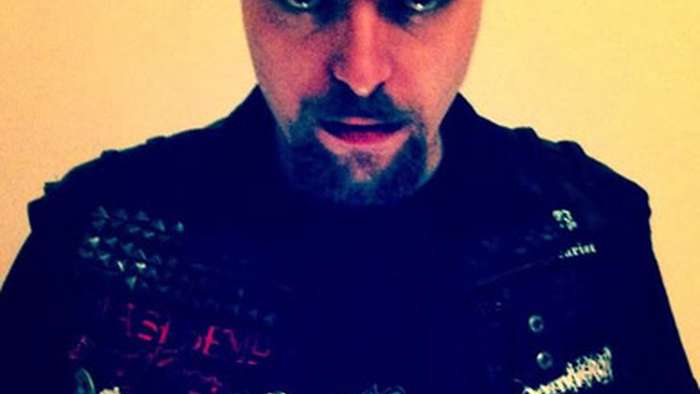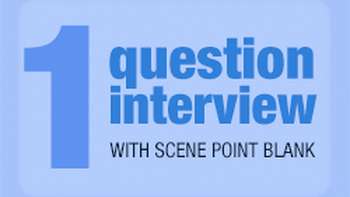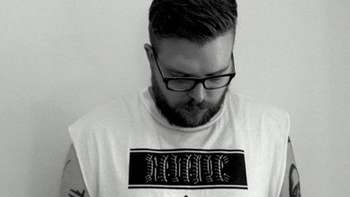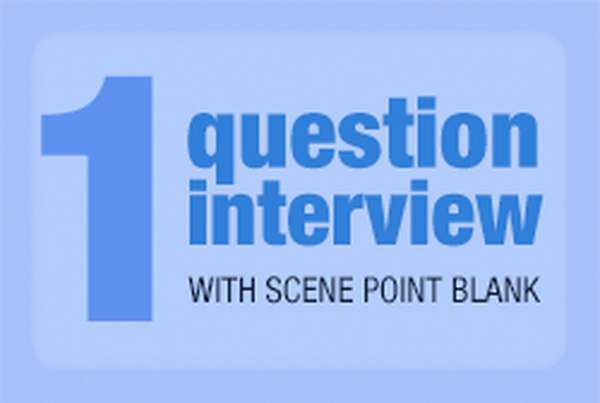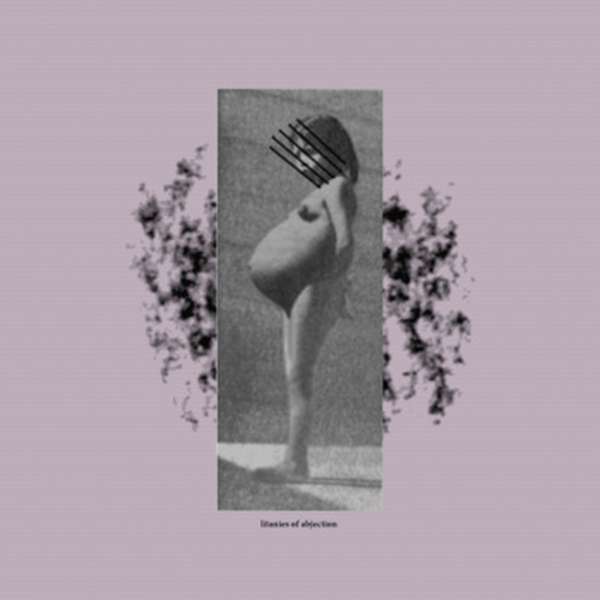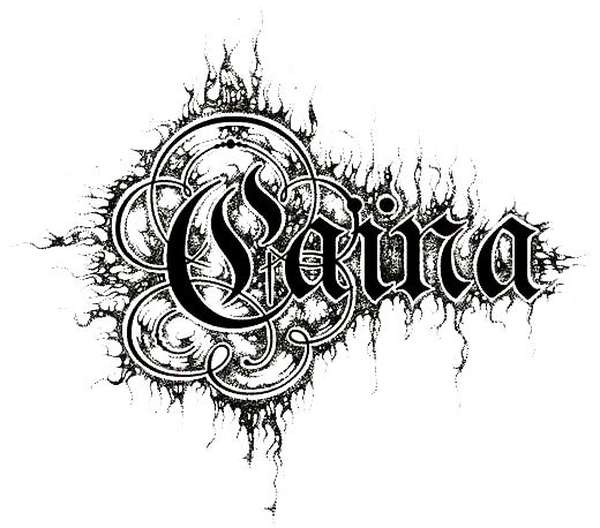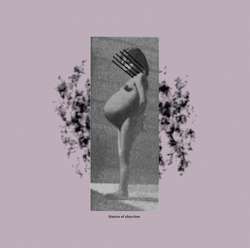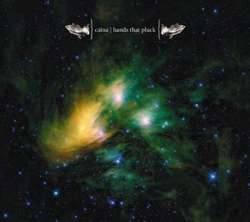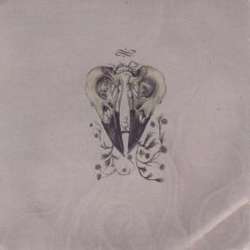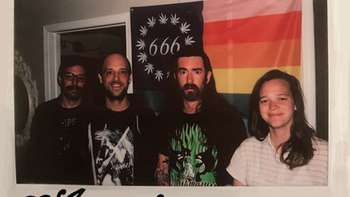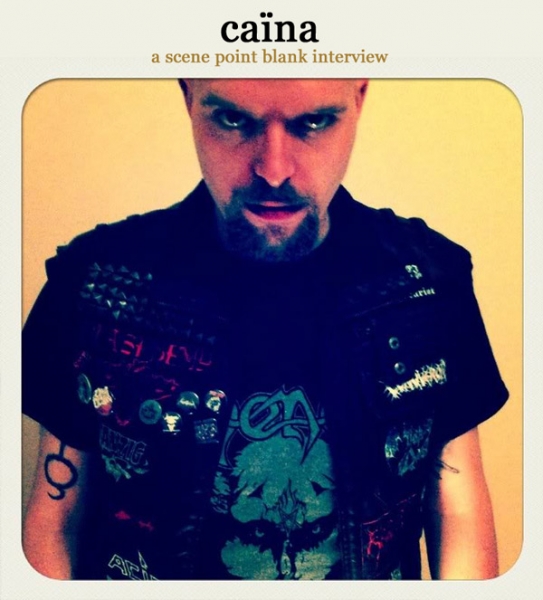
On August 2nd, Caïna - an all encompassing black metal project led by Andrew Curtis-Brignell - released what will be the final record under the Caïna name. Andy recently took the time to answer some questions we had for him about the new album, Hands That Pluck, which we reviewed here.
Scene Point Blank: Hands That Pluck will be your final album under the Caïna moniker, is that something that you knew going into writing/producing the record? And how did it affect the final product?
Andy Curtis-Brignell: Yes, I knew prior to embarking on the album that it would be my last with Caïna. It affected the process in a couple of different ways – the album is very aggressive, very heavy, and I think it culminates with a true 'finale', which would probably be too portentous and OTT without the knowledge of the album's 'finality'. I also wanted to make sure that I said everything I wanted to say musically with Caïna within the confines of this album, so it's quite a diverse record.
SPB: I noticed the use of film dialogue in two tracks, how did you choose those particular pieces? Is the use of samples/quotes something that you mean to do, or something that happens as part of the song writing process?
Andy: The first sample is from Peckinpah's Cross of Iron, and it was something I wanted to include from the moment I came up with the concept for the album – the words resonate with the title and lyrics, as the film is a profound exploration of the absurdity inherent within the human condition and our irrevocable desire to destroy ourselves and our planet. The second, from Von Trier's Antichrist, was a later addition but is no less important for that. The track it features on ('Haruspication') is really an intro into one of the album's longest tracks 'I Know Thee of Old', which looks at the inescapable, ineffable attraction of destruction and chaos. “Nature is Satan's Church,” is what the character says, which (out of the context of the film) could be taken two ways – that 'the natural world' is full of corruption and evil, or that fundamental human nature is where the ultimate evil of our species is housed and worshipped. In my instance it's the latter.
I think it's important not to use film samples willy-nilly and irrelevantly – I got some shit for including the Jim Jones sample on my previous EP because someone else had already used it, but it fit exactly with the concept I was going for, so it would have been weak not to use it.
SPB: As well as being the album title, and a song name, Hands That Pluck is repeated as a lyric in a number of different tracks - was that intentional?
Andy: Yes. It was something which I stipulated had to be on every track from the very beginning. The changing contexts that the phrase is used in marks the narrative flow of the album’s concept.
SPB: Your lyrics are always one of the first things I notice whilst listening to a Caïna album; do you start off with clear ideas about what it is you want to say or is song writing a process that happens in a more natural way for you?
Andy: Normally it’s more natural and organic rather than contrived, but this album has quite a defined concept and narrative which led me to write in certain directions. However, any stiffness that might result from this has been (hopefully) mitigated by the lyrics contributed by the other artists, something I’ve never entertained before. I actually hate writing lyrics – I don’t have a problem coming up with material, but I find them much more exposing than the music itself, which is silly really since I have just as little skill in both areas.
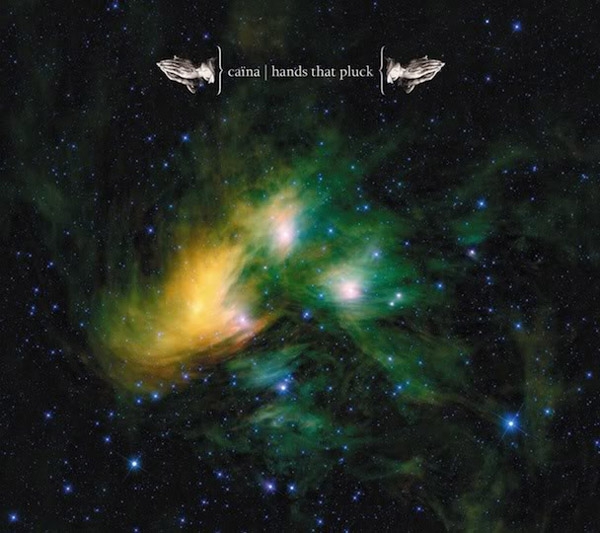
SPB: The artwork for the record is particularly striking, what kinds of ideas/thoughts are behind it?
Andy: Thank you! The album is all about an individual moving (not necessarily physically) from bitterness, disenfranchisement and hatred towards the human race into accepting and embracing all that horror and using it to their own advantage. I’m very preoccupied with the Thelemic concept of Will on this album, and of course Pyramidal shapes are highly totemic to Thelemites, so the image of this eerie, shimmering pyramid in space (a NASA photo doctored by myself), gleaming in the darkness, was highly evocative for me.
SPB: Once again you're releasing through Profound Lore records, how did that relationship come about?
Andy: Profound Lore and I have been working together since 2007, and each has seen the other grow and evolve during that time. I have no hesitation in declaring Profound Lore the best and most exciting metal-related label around today. I have no real idea why they continue to put up with me, since they have so many incredible artists on their roster, including some of my favourite bands – Portal, Amber Asylum, Thralldom (RIP), etc. They actually approached me after the release of the first album – the label who were due to release the not-yet-completed Mourner album collapsed because their founder died in a car accident, and Chris/Profound Lore were very supportive and nurturing in helping me complete and release that record, and it's continued from there really.
SPB: You have an array of guest artists on this album (something you've not really done before) how did those people become involved?
Andy: Aside from my brother, playing bass, I've known all three guys - Imperial (Krieg) Rennie (Starkweather) and C. Ross (Blood Revolt/Revenge/Axis of Advance) for a while now - having done the split with Krieg a couple of years ago and corresponded with Rennie and Chris for around the same time. I met Chris at a Revenge show in London a while ago and we had a couple of beers with my good friend Sam (Grief Foundation), who was putting out an Axis of Advance reissue, and we stayed in touch after that. They're all in bands I totally fucking worship and it's been a complete dream come true to have them all on the same record. I can't believe all of them said yes! I asked Chris, Rennie and Imperial before recording anything so that I could write the songs around their voices and styles, which I think made it easier for them and has helped to keep things varied – Rennie and Imperial both wrote their own lyrics too. Relinquishing control over the voice and the words was a lot easier than I thought it would be. I'm normally a massive control freak, but I had such confidence in the guys abilities that it really wasn't a big deal, and I'm thrilled at how it's turned out.
SPB: Do you have any major influences, both generally speaking and in particular for this album?
Andy: I'm influenced by all the music I listen to, which is a huge array of different genres and moods. In general I guess I'm most attracted to artists who follow their wills and refuse to limit themselves to a single genre or style – Swans, Björk, Nico, Scott Walker, Killing Joke, etc. But for this album I was mainly influenced by a lot of traditional, black and death metal, crust punk, and avant-garde/noise rock. I rediscovered my love of unpretentious heaviness – the works of Glenn Danzig, Maiden and Priest; I wanted to make a very heavy album that had a lot of edge whilst having some more classic metal licks to it – something I've steered away from it in the past. Obviously my experimental/post-rock background has bled into it on tracks like The Sea of Grief Has No Shores but there's a lot of stuff on here that people won't have heard from me yet. I think it's going to alienate people who liked the shoegaze tendencies of the Temporary Antennae album, for example. There was no question of returning to that style whatsoever, I've done it and that album has a very particular mood, and is self-contained.
SPB: Have you any plans musically for after the album release?
Andy: Nothing specific – I’m playing guitar in a Danzig-worship cult, and plan to jam with some friends, but I have no plans to release anything commercially for the foreseeable future. It would negate the meaning of ending Caïna if I launched straight into something else.
SPB: Excellent, thank you!
